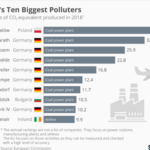F2F strategy – EU Setting Global Standards
The EU is expected to regulate global markets by setting sustainability standards for food systems. Legislative proposals for a framework for sustainable food system will be made before the end of 2023. As it works to build a single market by setting common standards, this will also be expanded to other global markets.
On May 20, 2020, the European Commission announced the Farm to Fork (F2F) Strategy and the EU Biodiversity Strategy These strategies which are at the heart of the Green Deal are focused on enhancing the food and agricultural sustainability in the EU and to achieve its United Nations Sustainable Development Goals.
European Commission (EC) Executive Vice-President, Frans Timmermans in his opening remarks on the Farm to Fork & Biodiversity strategies mentioned that the Biodiversity Strategy is essential for boosting the EU’s resilience and preventing the emergence and spread of future diseases. Timmermans emphasized that climate change and biodiversity crises are fully interconnected, therefore stopping biodiversity loss is a precondition for reaching climate neutrality.
Commissioner Virginijus Sinkevičius emphasised that biodiversity is far more than a purely environmental protection issue. The restoration plan also includes action to integrate biodiversity in other economic activities and uses of land and sea, from agricultural land to the heart of our cities.
The F2F Strategy aims to accelerate EU’s transition to a sustainable food system that should:
- have a neutral or positive environmental impact
- help to mitigate climate change and adapt to its impacts
- reverse the loss of biodiversity
- ensure food security, nutrition and public health, making sure that everyone has access to sufficient, safe, nutritious, sustainable food
- preserve affordability of food while generating fairer economic returns, fostering competitiveness of the EU supply sector and promoting fair trade

The Farm to Fork Strategy farm to fork strategy\communication-annex-farm-fork-green-deal_en.pdf sets targets to transform the EUs food system by
- Reducing by 50% the use and risk of pesticides,
- Reducing by at least 20% the use of fertilizers,
- Reducing by 50% in sales of antimicrobials used for farmed animals and aquaculture,
- Reaching 25% of agricultural land under organic farming.
- Improving labelling to better meet consumers’ information needs on healthy, sustainable foods.
Amongst the actions proposed by the European Commission are:
Certification & labelling
Combined with certification and labelling on the sustainability performance of food products and with targeted incentives, the framework will allow operators to benefit from sustainable practices and progressively raise sustainability standards so as to become the norm for all food products placed on the EU market.
Removal of CO2
The Commission will develop a regulatory framework for certifying carbon removals based on robust and transparent carbon accounting to monitor and verify the authenticity of carbon removals
Reduce pesticide
The Commission will take additional action to reduce the overall use and risk of chemical pesticides by 50% and the use of more hazardous pesticides by 50% by 2030.
Sustainable and innovative feed additives
Agriculture is responsible for 10.3% of the EU’s GHG emissions and nearly 70% of those come from the animal sector. They consist of non-CO2 GHG (methane and nitrous oxide). In addition, 68% of the total agricultural land is used for animal production. To help reduce the environmental and climate impact of animal production, the Commission will facilitate the placing on the market of sustainable and innovative feed additives.
Promotion of organic farming
The EU plans to reach the objective of at least 25% of the EU’s agricultural land under organic farming by 2030 and a significant increase in organic aquaculture.
EU Code of Conduct for responsible business
The Commission will develop an EU Code of conduct for responsible business and marketing practice accompanied with a monitoring framework. T.
Sustainability be integrated into corporate strategies
The Commission is also preparing an initiative to improve the corporate governance framework, including a requirement for the food industry to integrate sustainability into corporate strategies.
Setting nutrient profiles
The Commission will seek opportunities to facilitate the shift to healthier diets and stimulate product reformulation, including by setting up nutrient profiles to restrict the promotion (via nutrition or health claims) of foods high in fat, sugars and salt.

Harmonized mandatory front of-pack nutrition labelling
To empower consumers to make informed, healthy and sustainable food choices, the Commission will propose harmonized mandatory front of-pack nutrition labelling and will consider to propose the extension of mandatory origin or provenance indications to certain products, while fully taking into account impacts on the single market.
Geographical indications
The commission will strengthen the legislative framework on geographical indications (GIs) and, where appropriate, include specific sustainability criteria.
Harmonization of voluntary green claims
The Commission will also examine ways to harmonize voluntary green claims and to create a sustainable labelling framework that covers, in synergy with other relevant initiatives, the nutritional, climate, environmental and social aspects of food products.
Minimum mandatory criteria for sustainable food procurement
To improve the availability and price of sustainable food and to promote healthy and sustainable diets in institutional catering, the Commission will determine the best way of setting minimum mandatory criteria for sustainable food procurement. The Commission will lead by example and reinforce sustainability standards in the catering contract for its canteens.
Promoting Global Transition
Through its external policies, including international cooperation and trade policy, the EU will pursue the development of Green Alliances on sustainable food systems with all its partners to support a global move towards sustainable food systems.
Sustainability chapter in all EU bilateral trade agreements
The EU will seek to ensure that there is an ambitious sustainability chapter in all EU bilateral trade agreements. It will ensure full implementation and enforcement of the trade and sustainable development provisions in all trade agreements, including through the EU Chief Trade Enforcement Officer
Promote international standards
The EU will strive to promote international standards in the relevant international bodies and encourage the production of agri-food products complying with high safety and sustainability standards, and will support small-scale farmers in meeting these standards and in accessing markets.
Legislative proposal to avoid placing products associated with deforestation
To reduce the EU’s contribution to global deforestation and forest degradation, the Commission will present in 2021 a legislative proposal and other measures to avoid or minimize the placing of products associated with deforestation or forest degradation on the EU market
EU sustainable food labelling framework
As part of its approach to food information to consumers and combined with the legislative framework on sustainable food systems, the EU will promote schemes (including an EU sustainable food labelling framework) and lead the work on international sustainability standards and environmental footprint calculation methods in multilateral fora to promote a higher uptake of sustainability standards.
The growing presence of green parties in the EU since elections in 2019, has paved the way for more environmental regulations and protectionist policies. The EC President Ursula von der Leyen has made green policies part of her political guidelines.
Palm oil exporters, in particular will need to be more vigilant and keep a close watch on legislative proposals that will be presented in 2021 in the EU to minimize the placing of products associated with deforestation or forest degradation. The Renewable Energy Directive (RED) has provided valuable lessons for palm oil exporters in this area.
As the elements of the Farm to Fork strategy which is at the heart of the Green Deal may be also imposed on imported agri – food products and commodities, it is important that producer countries either tighten or strengthen their own sustainability requirements.
In May, the EP’s Committee on Development published a draft opinion with amendments on the EU’s role in protecting and restoring the world’s forests. The amendments linked deforestation to commodities such as palm oil, meat, soy, cocoa, maize, timber and rubber and urged farmers not to grow crops such as palm oil. Earlier, the ENVI committee urged the commission to propose an EU action plan on palm oil and other causes of deforestation.
Although there was no specific mention of palm oil in the F2F strategy, given the pressure from the ENVI and Development Committees’ there is a risk that commodities like palm oil may be included in new proposed EU legislations.











Leave a Reply